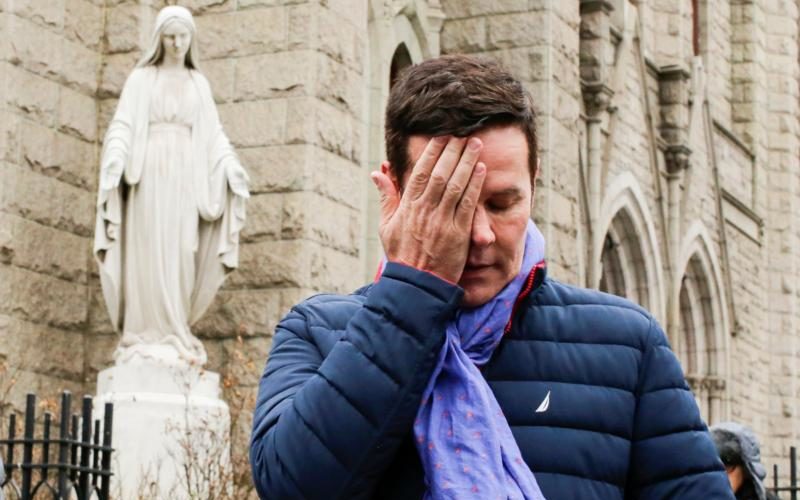The Pope’s Apology Vindicates Chilean Abuse Survivors – but Why Did They Have to Suffer So Long?
By Christopher Altieri
Those who misled the Pope 'no doubt felt they were protecting the institution', says Marie Collins Pope Francis has made a general apology to the victims of sexual abuse and clerical cover-up in Chile and called on the bishops of the country to come and meet him in Rome to discuss the crisis in the Chilean Church. While the Holy Father did not apologise specifically to the victims he accused of calumny while visiting their country — accusations he repeated to journalists several days later on the return trip to Rome — he did say: “I recognise, and so I ask that you faithfully convey, that I have made serious mistakes in the assessment and perception of the situation, owing especially to a lack of truthful and balanced information.” The Archbishop-Emeritus of Santiago de Chile, Cardinal Francisco Errazuriz, who was involved in several mishandled abuse cases, including that of the disgraced former celebrity priest, Fernando Karadima, is a member of the Pope’s “C9” Council of Cardinal Advisers. Correspondence between Cardinal Errazuriz and the current Archbishop of Santiago, Cardinal Riccardo Ezzati, stongly suggests the two men were determined to block the nomination of abuse survivor Juan Carlos Cruz to the Pontifical Commission for the Protection of Minors. Cruz is one of the survivors Pope Francis accused of calumny in connection with the case of Bishop Juan Barros, whom Cruz accuses of having witnessed, enabled and covered up Karadima’s abuse of him and many other young people. The Holy Father went on to say: “Here and now, I apologise to all those I have offended, and I hope to be able to do so personally, in the coming weeks, in the meetings I will have with representatives of the people interviewed.” Pope Francis wrote the letter on the Octave of Easter — Divine Mercy Sunday — after completing his review of the report prepared by his special envoy to Chile, Archbishop Charles Scicluna of Malta, who also stopped in New York to hear evidence from Mr Cruz as part of his investigation. Archbishop Scicluna spent years as the Vatican’s chief sex crimes prosecutor and helped draft the legislation Pope Benedict XVI implemented to combat clerical sex abuse. Scicluna got his special assignment in the wake of worldwide shock, anger and protest at the accusations of calumny Pope Francis levelled against the Chilean abuse survivors who accuse Barros, and after the AP reported that the President of the Commission for the Protection of Minors, Cardinal Sean O’Malley of Boston, had personally delivered a letter from Mr Cruz detailing Bishop Barros’s alleged enormities into the Holy Father’s hands several years ago, even though the Pope had claimed he had never heard from any of the victims. Archbishop Scicluna presented his investigation into abuse and cover-up allegations in Chile, many of which had been public for years, in the form of a 2,300-page report, which Pope Francis says he received on March 20. “With all this in mind,” Pope Francis wrote to the bishops of Chile, “I am writing to you, gathered at your 115th plenary assembly, humbly to request your cooperation and assistance in discerning the short-, medium-, and long-term measures to be taken to reestablish ecclesial communion in Chile, with the purpose of repairing the scandal as much as possible and of restoring justice.” Pope Francis went on to write: “I plan to call you to Rome to discuss the conclusions of the aforementioned visit and my own conclusions. I have conceived of this meeting as a fraternal moment, without prejudices or preconceived ideas, with the sole objective of making the truth shine in our lives.” Irish abuse survivor, advocate and founding member of the Pontifical Commission for the Protection of Minors, Marie Collins, who resigned from the Commission in frustration in 2017, told the Catholic Herald the vindication of the Chilean survivors is belated, and the prospects for real remedy uncertain. “While it is good to see the survivors in Chile vindicated,” she said via email, “it is sad they have had to suffer so long before being believed.” She continued: “The representatives of the Catholic Church in Chile who misled the Pope no doubt felt they were protecting the institution and maybe themselves.” “This is a particular case as the Pope is involved,” Ms Collins added, “but it is the same mechanism as has happened in country after country where survivors have come forward and cover up taken place. It will continue to happen until there is real change in the culture of the Church.”
|
.
Any original material on these pages is copyright © BishopAccountability.org 2004. Reproduce freely with attribution.
